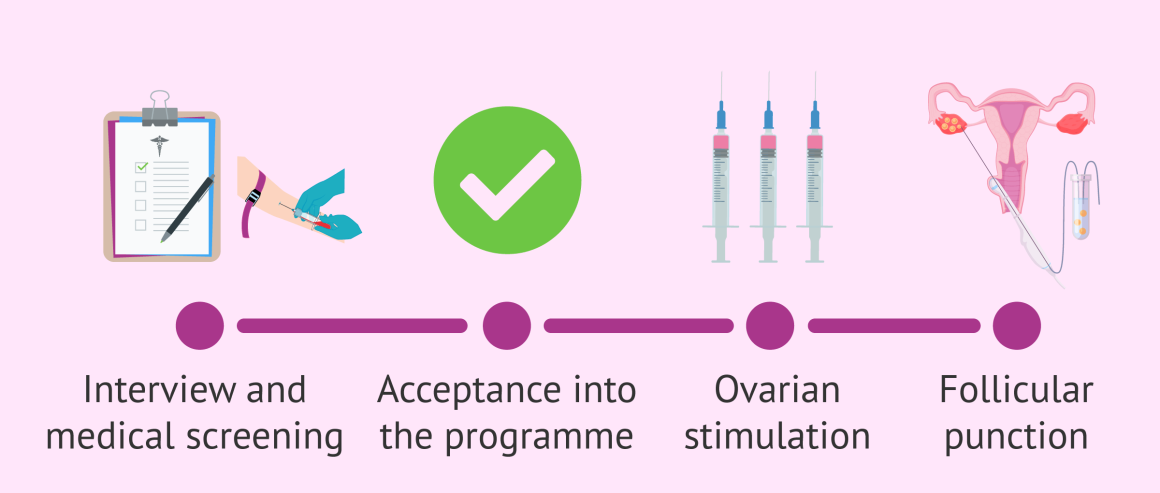At Alcove Fertility Center, we offer a comprehensive and supportive program to couples and individuals who are unable to conceive using their own eggs or who are at an advanced reproductive age.
Our donors have undergone rigorous screening and testing to ensure their health and suitability for donation.
You may be considering using donor eggs if you are unable to use your own eggs, for example:
- if you are going through premature menopause
- if there is a risk of passing on genetic disease
- if your ovaries have been affected by chemotherapy or serious illness
- if you have had IVF treatment but repeated cycles have indicated poor egg quality
- you need egg donation in order to grow your family, for example, same sex male couples
The success rate using donor egg treatment is directly related to the age of the donor, and the number and quality of donated eggs.
This can happen when the recipient and donor are known to each other, for example, our patients come to see us with a family member or friend who is willing to donate her eggs.
Sometimes, a woman connects with us to generously offer donating their eggs.
If you are unable to find your own donor, we can also provide advice and support on ways to navigate the process of getting an egg donor.
1. Counselling
After an initial consultation with your fertility specialist, counselling is scheduled. This is an opportunity to consider the legal, social, genetic and psychological aspects of being involved with the donor program and helps everyone make an informed decision.
The donor will then undergo the required medical checks.
2. Recipient – Donor IVF cycle
Having chosen an egg donor, and the donor involved undergoes an IVF cycle to have the eggs collected.
The IVF treatment may be coordinated to synchronize the recipient and donor cycles. This allows the eggs to be collected from the donor and transferred to the recipient at the best possible time.
The managing fertility specialist will monitor the donor as she undergoes vaginal ultrasounds and blood tests to determine when to collect the eggs. The egg collection procedure is usually performed under a light sedation or general anesthetic at Alcove Fertility Center.
At the time of egg collection, the sperm is collected and the eggs are fertilised in the laboratory. Three to five days after the egg collection, one of the resulting embryos is transferred into the recipient and any other viable embryos are frozen, or all are frozen, for potential future transfer. After two weeks, a pregnancy test is carried out.
In addition to any fertility treatment costs, there are also costs involved in the preparation of the egg donor.


